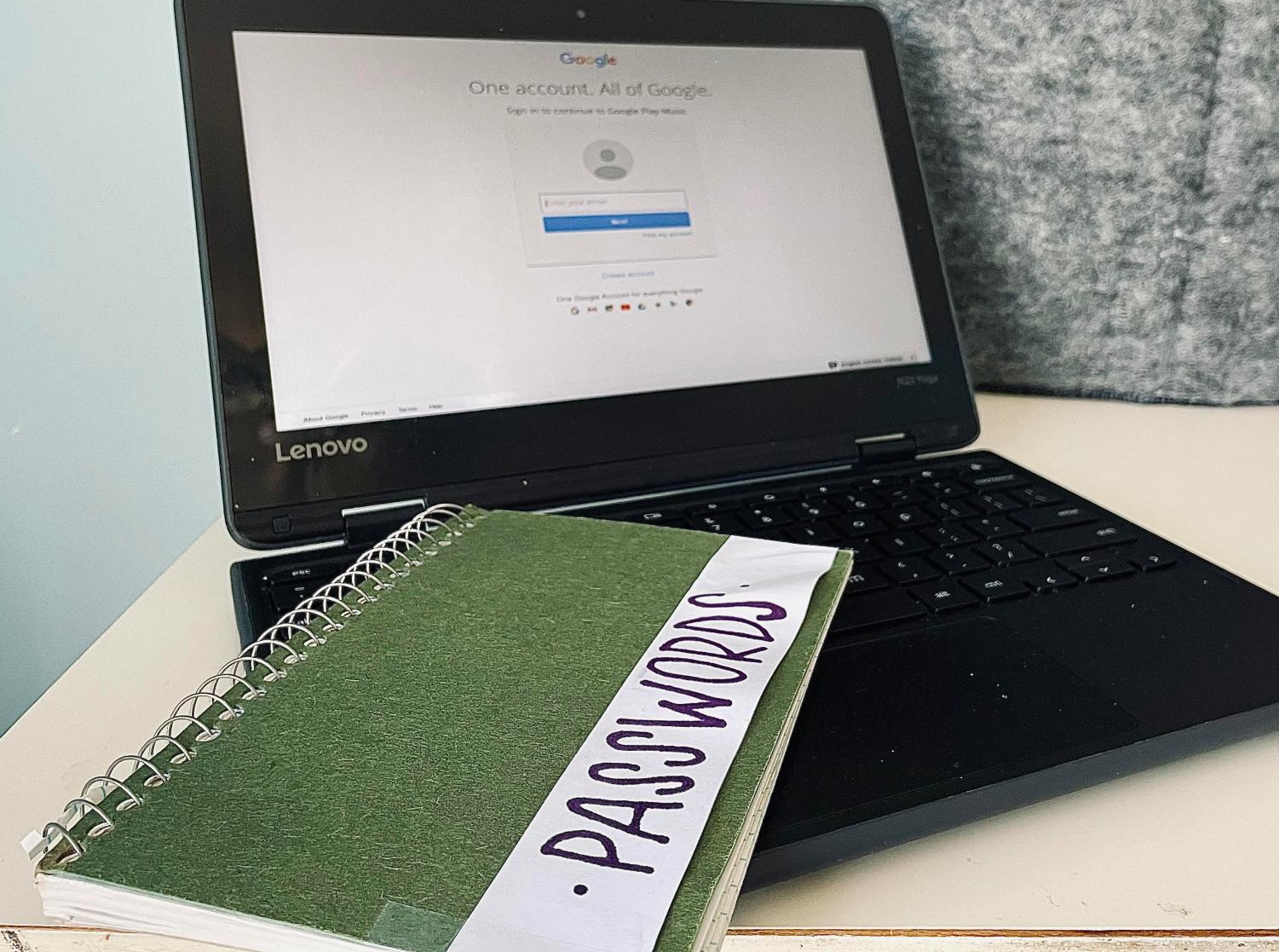Password protection: an overview of online safety
March 3, 2021
If someone wanted to enter an account that you own, how many guesses would it take for them to access all of your data? For less sophisticated websites, anyone with enough motive can have unlimited tries at your password. Known as a dictionary attack, hackers can combine basic information about you that they have acquired by a quick Google search. Cyber crime has become an increasing issue in society, but proper measures can help keep data safe and secure.
For sophomore Veronica Lasota, being hacked has changed the security measures she takes for a variety of accounts. She now prioritizes keeping her identity private and inaccessible to strangers.
“I took my VSCO out of my Instagram bio. I’ve also taken more precautions on who I decide to add on social media,” Lasota said.
Lasota chose not to pursue the hacker’s case further with law enforcement because she did not experience monetary losses. Upon pressed charges, it is a misdemeanor to simply access another person’s password-protected information and a felony to alter that data. With over 250 reports of cyber theft or fraud in Downers Grove alone, cyber crime has become an increasing issue.
“There are not enough police officers involved in cyber security. There’s only 2,500 of us,” High Technology Crimes Detective Richard Wistocki said.
Officer Tom Powers is DGN’s school resource officer and categorizes password-related crime like identity theft. With the low number of police officers trained in cyber crime, it is essential to have assistance from outside sources to have success charging cyber criminals.
“Most businesses and social media companies have dedicated units specifically assigned to assist law enforcement,” Powers said.
Qualified to work in one of those units, Max Scartezina is a Senior Technology Consultant. His job revolves around cyber security and privacy protection. With such a technology oriented position, Scartezina has gained lots of insight on how to protect his information online. He is able to provide effective techniques in regards to keeping online data safe from cyber crime.
“I recommend that people come up with passphrases rather than passwords. Passphrases are a lot more secure. A lot of times, if a service does not have the necessary controls in place, a potential hacker could try a password over and over,” Scartezina said.
A passphrase, known as a longer, more secure way to gain access to a platform or system, often combines words in an unconventional way. Scartezina recommends utilizing non identifying words that can be combined into a phrase. That code typically includes numbers and symbols to make it more complex. However, there are other ways to construct a secure password.
“People should have slight differences in their passwords for each site, such as using the platform’s varying logo colors,” Wistocki said.
Although Wistocki approaches the creation of passwords differently than Scartezina, they both advocate for changing passwords often.
“Try not to reuse your passwords. If you are going to reuse your password, at least base your password reuse on the sensitivity of the service. You should change your passwords at least once a year. I’d recommend changing your passwords in more liable accounts, like banking, a few times per year,” Scartezina said.
Scartezina and Wistocki’s suggestions should be taken seriously. Lasota, post cyber attack, now understands the importance of password and online safety. She advises her friends and family to learn from her experience. Describing the entirety of the situation as freaky, she feels strongly about taking preventive measures to avoid being hacked.
“I feel more aware of how social media is never private, even when things are not visible to others. This entire situation was an annoyance, and I wish I had been able to avoid it. The entirety of this situation solidified that what I do online is not necessarily only viewed by me. I’ve learned to be more responsible with the technology that I have,” Lasota said.

Dan Beaty • Mar 3, 2021 at 8:17 pm
This is an awesome article.